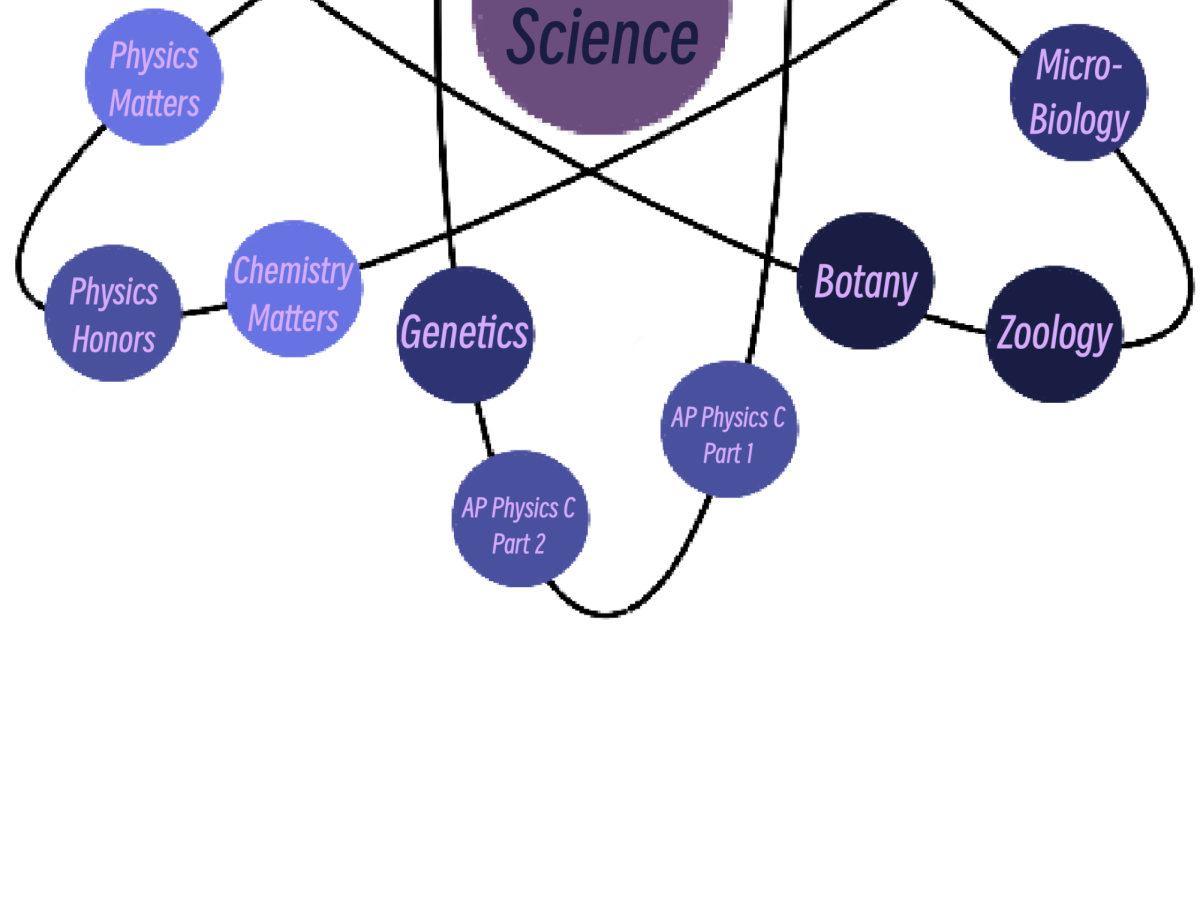This was previously published in our October 2024 issue.
Every year, many students are forced to abandon courses they are interested in due to an overstuffed schedule, especially in the Science department. There are few science courses that do not take up a full credit, so finding slots for full-year courses in an already tight schedule can be difficult. However, a recent proposal has provided a potential solution.
On Oct. 14, nine new science courses were proposed to the East Penn School Board by Mike Mihalik, Supervisor of Secondary Teaching and Learning for the STEM department in East Penn. These changes include separating courses such as Botany and Zoology, as well as Microbiology and Genetics, Advanced Preparation (AP) Physics C as two courses, Chemistry Matters, Physics Matters, and Honors Physics. Of these courses, Botany, Zoology, Microbiology, Genetics, Chemistry Matters, and Physics Matters would be half-year courses.
“It’s really meant to give kids a lot more choice and flexibility with scheduling,” Mihalik said. “They’ll blow through [the required graduation credits] and exceed that, [and] be able to pick up more courses that they’re passionate about.”
The objective in doing this is to allow students to only pursue the parts of the course they are interested in to conserve time. A student fascinated by zoology but impartial towards botany can now take only zoology, instead of spending half the year studying something they are not passionate about.
Chemistry Matters and Physics Matters are both entirely new half-credit CP courses meant to provide an alternative to full year chemistry and physics courses.
The new courses are compressed versions of their full credit counterparts, intended to give an overview of the topic in less time.
“For kids that are looking for a half credit course, we don’t really have many…we wanted to increase that, especially in [chemistry] and physics,” Mihalik said.
This proposal also introduces an Honors Physics course. As of right now, students’ choices are an on-level, full-year physics course, or an AP Physics course, which may be an issue for some students who want to take a more challenging course without the pressure of an AP test. With the introduction of the Honors Physics course, along with the rework of AP Physics C from a one-and- a-half-credit course into two, one-credit courses, students will have more options and different pathways they can follow with physics.
Mihalik’s plan is to put these changes into effect next year. However, many of these courses require a passing grade in biology making these courses inaccesible for most freshman and sophomores.
This new proposal of classes for the Science department opens up many new opportunities for students at EHS interested in STEM. As new half-credit courses are introduced and the physics pathway is reworked, the Science department will likely become far more accessible to students with already full schedules.






